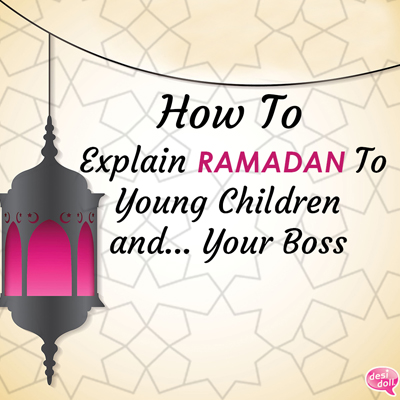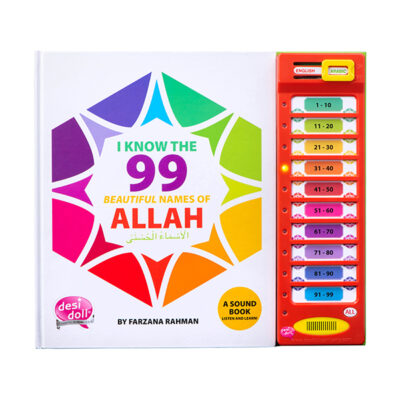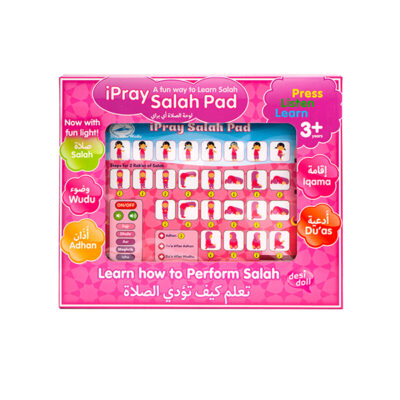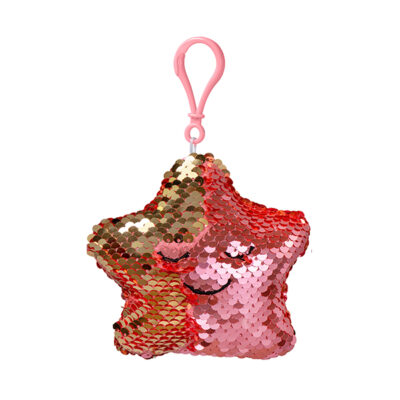“Ramadan….What’s that?”
“Why are you fasting?”
“Seriously….You can’t even have water?!?!”
We’ve all been faced with that same bewildered look. Whether it’s from our colleagues at work, or our own children, questions about Ramadan can leave us tongue-tied!
Why is it that questions about fasting leave us stuttering and stammering, or just blurting out the first thing that comes to our mind. This article will give you some advice on how to handle these questions and give you tips on How To Explain Ramadan to Young Children….and Your Boss!
Assess the Situation
The key to answering these questions, is to think about the person who is asking them. What can I say that would benefit them? Why are they asking these questions?
When it comes from a child, you can be certain it is because they are genuinely interested. Most children want to imitate those they love. They’ve seen how their parents behave differently during Ramadan and they want to know why.
It’s worth remembering that Ramadan can be very disorientating to a young child. The household routine is completely overturned, Mum and Dad are more tired, and for a whole month they barely go anywhere but the Masjid…. Even the food changes!
Instead of the excitement we feel as parents, this disruption in routine may actually lead to unnecessary stress and unease for our children. That is why it is so important to explain the essence of Ramadan to our children as soon as they are able to understand.
Through effective communication, we can explain why we are fasting and why it matters. Let’s nurture a love for Ramadan in their hearts and deepen their connection to this Blessed month.

The same principle also applies when explaining Ramadan to your non-Muslim colleagues at work. Consider, why are they asking? It may be that they know very little about Ramadan, or even Islam, and want to know more. Alternatively, they may just be making conversation! Try to ascertain what their motivation is for asking, and adjust your response accordingly.
If you can overcome the initial awkwardness, explaining to them why you are fasting and what it means, will help them to feel a connection with what you are doing, and make it easier for you in the workplace. Once people understand what you can and cannot do, and understand why, the whole month will run a lot more smoothly for you insha’Allah.
Do not use their polite questions as an opportunity to give them a long lecture in the hope of doing Dawah! Too much information can turn people off altogether.
It’s not just WHAT you say that matters…but HOW you say it!
Whether you are talking about Ramadan to your children, or your boss, there are 2 points you need to remember:
Keep it Simple
Don’t over-complicate things by dwelling on the rules; what you can and cannot do. You don’t need to explain the lunar calendar, the timings of the fast or other particulars. Instead talk to them at a level they will understand and appreciate.
Keep it Positive
It is so important to emphasise the benefits of fasting. Whether you are talking to young children, or to your colleagues at work. Keep it positive.
For example, instead of saying, “I CAN’T eat or drink ANYTHING from the true dawn, to just after sunset.”
Say, “I WILL not be eating or drinking during daylight hours.”
Do you see the difference?
Can you hear how one response comes across as negative and confusing, whilst the other is upbeat and confident.
How about this situation;
“Why do you fast?”
Do you say, “Because it says I HAVE TO in the Quran,”
OR…
“Because IT HELPS ME to become a better person”?
O you who believe! Observing al-sawn (the fasting) is prescribed for you as it was prescribed for those before you, that you may become al-muttaqûn (the pious).” (2:183)
You get the idea! Both answers are correct, but you need to assess who you are talking to, and which answer would be most beneficial to them.
Depending on the personality and interests of your child (or colleague), you may wish to give greater emphasis to different aspects of the Ramadan.
Points worth mentioning:
Empathy
Through experiencing hunger and thirst, fasting teaches us to empathise with those in the world who have little to eat day after day.
Worship
-Fasting is done solely for Allah. It is a way that we worship and show our servitude to Him.
-Through this increased devotion, Muslims feel closer to their Creator, and recognise that everything we have in this life is a blessing from Him.
-Ramadan is the Islamic month during which the Quran was revealed. Fasting in this month is one of the five pillars of Islam that shape the lives of Muslims.
-It is a time for us to become closer to God, through reciting the Quran and contemplating its meaning.
Honesty
It is possible to ‘cheat’ and break your fast before the time. However by remembering that Allah knows everything, it teaches us to be honest.
Self-discipline
Fasting is an exercise in self-discipline. To stay away from food is just a part of it. Staying away from bad deeds requires considerable control and strictness with oneself.
Fasting, Sawm in Arabic, literally means ‘refrain’.
We must not only fast with our stomachs (refrain from food and water), but with our tongues (refrain from backbiting and gossip), our eyes (refrain from looking at inappropriate images), our ears (refrain from listening to gossip or obscene words), our feet (refrain from going to inappropriate places).
The Prophet (Peace be upon him) is reported to have said, ”Fasting will intercede for a person on the Day of Judgment, and will say, “O Lord, I prevented him from his food and physical desires during the day, so let me intercede for him.” (Ahmad).
Charity
Through increased charity during this month, Muslims develop feelings of generosity and good-will toward others.
The Prophet Muhammad (peace be upon him) once said, “A man’s wealth is never diminished by charity.”
Emotional Healing
It is a time during which we make peace with those who have wronged us, strengthen ties with family and friends and do away with bad habits – it’s essentially a spring clean for both the body and soul!
Physical benefits
In addition to the spiritual benefits, which may be difficult to explain to a non-Muslim, there are a multitude of physical benefits worth mentioning:
- It works to detoxify and cleanse the body
- Improves blood fat levels and lowers cholesterol
- Helps to overcome addictions
- Promotes fat breakdown and weight loss
- Increases the production of brain cells
- The body produces less cortisol, meaning less stress
- Lasting appetite reduction
- Metabolism becomes more efficient and absorbs more nutrients
- Overall tranquility and elevated mood
‘Magic’ of Ramadan
For young children especially, talking about Islam and the other-worldly aspect of Ramadan, can really appeal to their imaginations. Tell stories and talk to them about these points:
– It is narrated that the Prophet (pbuh) said, “When Ramadan begins, the gates of Paradise are opened and the gates of Hell are closed, and the devils are put in chains.” (Al-Bukhari).
– It is narrated that the Prophet (pbuh) said, “In Paradise there is a gate called Ar-Rayyan, through which those who fast will enter, and no one will enter it except them; when they have entered it will be locked, and no-one else will enter through it.” (Al-Bukhari)

-Lailatul-Qadr
There is one night in the month that is better than a thousand months (that’s 83 years by the way!). This is the night when the Quran was first revealed to the Prophet Muhammad (peace be upon him).
Familiarise yourself with the story, and explain it to your children (we will be writing a blog post about Lailatul Qadr very soon, so hopefully that will help!)
Ask children to write a special dua’ for this night.
Discussing Ramadan with your children is so important if we are to ignite a love for this amazing month in their early years. In addition to talking about it, there are many books available that aim to introduce Ramadan to young children and teach them about Islam.
Your children will love to hear you share your excitement and hopes for the month. Talk about your childhood memories and experiences of Ramadan, the foods, the “studying and sitting exams whilst fasting”, the long and hot fasting days, the list goes on!
Children love the idea of fasting – and will no doubt be insisting to be woken up for Suhoor. Perhaps on the weekends you can arrange this, so that they can take extra rest. For younger children, allow them to fast for a few hours, or part of a day, but remember there is no compulsion for children to fast. Always congratulate them on their fast, no matter how long (or short) it was!
These were our tips on How to explain Ramadan to Young Children…and your boss!
Have you spoken to your children about Ramadan?
How did you introduce the subject to them?
Was there any specific way that was most effective?
We would love to hear your ideas. Please leave them in the comments below or tell us on social media!
More posts like this… |
|
 Gemma Elizabeth of Our Muslim Homeschool, has featured our fun dough Arabic letter in her recent blog post. Find out 5 ways… Read More. |
 Ramadan is only 4 weeks away…but are you ready? Let’s get ready to make this the best Ramadan ever! Many of us… Read More. |





Jazak Allah khairan, beautiful article.
Well written. Really helps put into perspective for all to gain understanding of why we fast and ultimately what it’s such an important month and pillar of our religion. Jazakallah for the lovely article. Should be shared with all Muslims and non-Muslims alike.